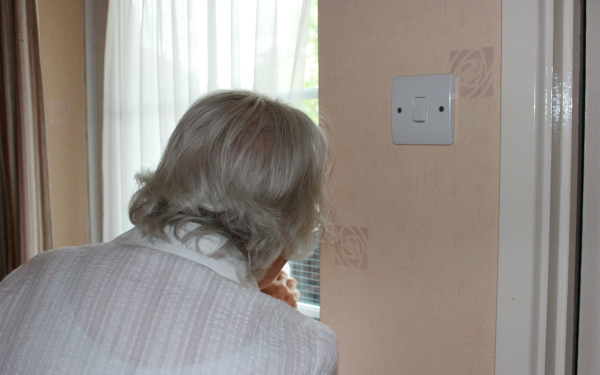
By Stephen Martineau
As the Care Bill was making its way through Parliament, much was written in Community Care about the debate over whether social workers should have a court-sanctioned power of entry in England when their safeguarding enquiries seem to be being hindered by a third party.
Those in favour of this power argued that it was necessary in order to fulfil the new statutory duty, under section 42 of the Care Act 2014, to make enquiries when a safeguarding concern has arisen. Others argued that present legal powers were sufficient, that the use of a power of entry might actually increase the risk of further harm, and that its availability might have a negative effect on the ethos of social work practice.
No power of entry in Care Act
In the event, the ‘adult safeguarding access order’, proposed by Baroness Greengross in the Lords and Paul Burstow in the Commons, failed to make it into the Care Act 2014.
But how great a problem do social workers really face in this area? And what is the range of safeguarding responses that are currently being put into practice when a third party seems to be obstructing local authority staff?
Researchers at King’s College London are conducting a study examining these questions, concentrating on the period since the Care Act’s implementation in April 2015. Our work to-date has considered the background to the topic, including analysing the Department of Health consultation on a new safeguarding power in 2012, the Parliamentary debates in 2013-14, the current state of play in Scotland and Wales and the historical and legal context in England.
Survey of safeguarding managers
We are now asking adult safeguarding managers, or those working in similar roles, in England to take part in an online survey of their experiences and views.
The online survey will take about ten minutes to fill in and questions will include: how often, if at all, has such obstructive behaviour taken place in your adult safeguarding work? What are the characteristics of these difficult situations? What have proven to be useful approaches? What legal avenues have you explored? And would a power of entry have made any difference?
We are going to undertake in-depth interviews with social care professionals in three English councils as well as the online survey.
In an interesting and complex field of study, three elements have struck us particularly about the topic so far.
Legal divergence across UK
First, there are the divergent legislative approaches of Scotland (where there has been power of entry and associated orders of assessment, banning and removal, since 2008), Wales (which, since April, has had a power of entry for private interview) and England in this area. This makes for a topic that is fertile for a comparative approach – in this it sits alongside the kind of ‘internationalist’ rethinking of the principles of mental capacity legislation that is under way in light of the UN Convention on the Rights of Persons with Disabilities.
Second is the interface between adult safeguarding practice and approaches to tackling domestic violence and abuse – these are overlapping domains, and legislation in relation to the latter will often be relevant in situations of the kind in which we are interested.
Disproportionate social work resource
Finally, there is the matter of social workers and social care workers having to possibly spend disproportionate resources on one case. As was said in one court case of alleged abuse that was accompanied by a third party’s obstructive behaviour including, on occasion, the barring of social workers from entry and aggression towards them:
“The local authority had no alternative but to visit on numerous occasions and to attempt to see G on her own. Anything else would have been a dereliction of their duty to her as a vulnerable person about whom they had received complaints about possible financial predation. Local authority staff must be permitted to carry out their duty to investigate reports relating to safeguarding unhindered.” (Mrs Justice Russell, London Borough of Redbridge v G, C and F, paragraph 3)
Take part in survey
Our study is called Helping or hindering in adult safeguarding: an investigation of practice. If you are an adult safeguarding manager working in England or you work in a similar role and would like to take part in our online survey, please email me at stephen.martineau@kcl.ac.uk
The study is funded by the Policy Research Programme at the Department of Health, but the views expressed in this blog post are those of the author alone.
Stephen Martineau is research associate at the Social Care Workforce Research Unit, King’s College London


 Bournemouth, Christchurch and Poole
Bournemouth, Christchurch and Poole  Hampshire County Council
Hampshire County Council  Lincolnshire County Council
Lincolnshire County Council  Norfolk County Council
Norfolk County Council  Northamptonshire Children’s Trust
Northamptonshire Children’s Trust  South Gloucestershire Council
South Gloucestershire Council  Wiltshire Council
Wiltshire Council  Wokingham Borough Council
Wokingham Borough Council  Children and young people with SEND are ‘valued and prioritised’ in Wiltshire, find inspectors
Children and young people with SEND are ‘valued and prioritised’ in Wiltshire, find inspectors  How specialist refugee teams benefit young people and social workers
How specialist refugee teams benefit young people and social workers  Podcast: returning to social work after becoming a first-time parent
Podcast: returning to social work after becoming a first-time parent  Podcast: would you work for an inadequate-rated service?
Podcast: would you work for an inadequate-rated service?  Family help: one local authority’s experience of the model
Family help: one local authority’s experience of the model  Workforce Insights – showcasing a selection of the sector’s top recruiters
Workforce Insights – showcasing a selection of the sector’s top recruiters 

 Facebook
Facebook X
X LinkedIn
LinkedIn Instagram
Instagram
Comments are closed.